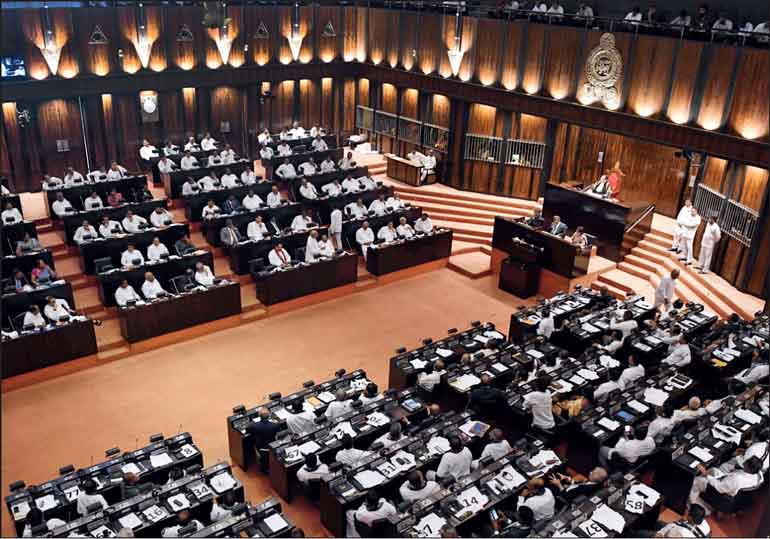Monday Feb 23, 2026
Monday Feb 23, 2026
Wednesday, 1 March 2023 00:20 - - {{hitsCtrl.values.hits}}

The Court of Appeal yesterday in a landmark decision directed the Parliament to release information of MPs who have submitted their asset declarations.
Following a Right to Information (RTI) application, Justice Sampath B. Abayakoon together with Justice P. Kuma-raratnam upheld the RTI Commission’s decision holding that: “as a public authority, it is the Sri Lanka Parliament that is in possession, custody or control of the information requested as envisaged in section 3 (1) of the RTI Act.”
Furthermore, the Court recognised that the Right to Information, a right which was subsequently recognised as a Fundamental Right under the 19th Amendment to the Constitution, is superior to the Declaration of Assets and Liabilities Act. The judgment found that the intention of the legislation is to give effect more robustly to the provision of the Constitution, “by fostering a culture of transparency and accountability in public authorities and institutions by giving effect to the right of access to information in combating corruption and promoting accountability and good governance.”
The RTI Commission in February 2021 gave its decision on an appeal made by journalist Chamara Sampath who filed an information request seeking information on assets declarations filed by parliamentarians for the period of 2010-2018. The appeal to the Commission was first lodged in June 2018 after the relevant Information Officer and the Designated Officer of the public authority, which is the Parliament in this event, refused to release the information sought.
The Commission comprising of commissioners Mahinda Gammanpila, Retired Justice Rohini Walgama, Senior Attorney-at-Law Kishali Pinto-Jayawardena, Attorneys at law S.G. Punchihewa and Selvi Thiruchandran made an order directing the Secretary General of the Parliament to release this information.
The Secretary General then filed this appeal before the Court of Appeal holding as one of its main contention that it was the speaker who had ‘possession, custody and control’ of the said information and that it was wrong to hold that the parliament had institutional possession, custody and control of the said information.
In response to this basis the Court of Appeal held that: “as a public authority, it is the Sri Lanka Parliament that is in possession, custody or control of the information requested as envisaged in section 3 (1) of the RTI Act”.
Justice Abayakoon further stated that: “I am of the view that even if the declaration of assets and liabilities by the Members of Parliament who are required to provide that information should be with the Speaker of Parliament, there cannot be any impediment to the Secretary General of the Parliament as the Chief Executive Officer of the institution to inquire into and provide a list of the names as requested by the respondent in terms of RTI Act, which in any way would not amount to encroaching into the powers of the Speaker of the Parliament in my view.”
In his seventeen page long determination Justice Abayakoon found that Members of Parliament as persons elected and maintained by the people are expected to abide by the laws of the country at all times.
Accordingly, the Parliament is now required to release the list of names of members of Parliament who have handed over their respective declarations of assets and liabilities in 2018, and the list of names of MPs who have handed over their declarations from 2010 up to the date of the request.
Thishya Weerragoda with S. Wimalaratne instructed by Niluka Dissanayake for the Appellant-Respondent while Himali Kularatne with Jayani Ellepola for the Added- Respondents, which was the RTI Commission. Mahen Gopellawa SDSG with Avanthi Perera DSG for the Designated Officer and the Secretary General of Parliament.